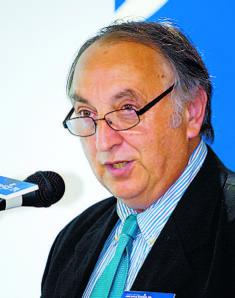PASCAL Co-director interviewed by Korea Herald
PASCAL Co-Director Professor Michael Osborne was interviewed in Korea following an address to the the Lifelong Learning Planet Forum hosted by the Gyeonggi Do Provincial Institute for Lifelong Learning (GILL) and the National Institute for Lifelong Education on the topic of UNESCO's International Platform for Learning Cities.
 'Korea is key partner in promoting lifelong education'
'Korea is key partner in promoting lifelong education'
By Oh Kyu-wook, Korea Herald, June 5, 2013
Korea will play a major role in the UNESCOs’ plan to build a global network of lifelong learning, according to an adviser to the initiative.
The United Nations Educational, Scientific and C ultural Organization is currently working to establish a network of cities advanced in lifelong education in October.
“Korean cities will be part of the network and will have the opportunity to show the rest of the world what they’re doing,” Michael Osborne, professor of adult and lifelong learning at Glasgow University, told The Korea Herald.
The renowned British scholar is one of a group of experts advising the UNESCO Institute for Lifelong Learning regarding its plan to launch the Global Learning Cities Network. He visited Korea this week for an expert meeting on the project.
With human resources the biggest asset of its rapid growth, Korea has already put the system in place for learning through different periods of one’s life and careers, he said.
The envisioned network’s members will be designated as UNESCO’s global learning cities. The aim is to create a global platform and establish a set of benchmarks for other cities to follow in allowing citizens more opportunities to acquire knowledge and skills.
“(When the network is completed) for sure, Korean cities will come out very strongly. It will be an opportunity for them to be known more in the world.”
The panel is currently looking to establish a set of standards for global learning cities. The UIL will hold a series of workshops before the official launch of the Global Learning Cities Network at the next summit in Beijing, Oct. 21-23.
A number of Korean cities have already shown great interest in becoming a UNESCO Learning City.
But he cautioned that cities should not be overly occupied with gaining such an honor which without strict standards and principles could end up a “catchy but meaningless name.”
There are a lot of cities in the world that already use the title “learning city,” but it doesn’t necessarily mean they really are, he said.
“It’s very attractive rhetorically to talk about being a learning city, but they need to make sure all the stakeholders are involved and to make sure the learning cities are a meaningful idea.”
Osborne has worked with many governments and international agencies, including the Council of Europe and the U.K. and, most recently, German governments.
One of the projects he is currently engaged in is analyzing implications of a survey called the Program for the International Assessment of Adult Competencies, or PIAAC.
Developed by the Organization for Economic Cooperation and Development, the survey is designed to measure adult competencies, such as reading, numeracy, teamwork and communication, he explained.
There are currently 25 countries participating in the survey, including Korea. The first results will be released in October, he said.
“My hypothesis is that countries which put a big emphasis on lifelong education will show the strongest results in PIAAC,” he added.
He expects Korea to show a strong showing, noting that it is one of the highly ranked countries in an international student assessment called PISA.
“It’ll be interesting to see whether the performance of the countries that do well in PISA is reflected in PIAAC,” he added.
Further details featured below and attached...
| Attachment | Size |
|---|---|
| Korea_Herald-MJO.pdf | 1.23 MB |
 Printer-friendly version
Printer-friendly version- Login to post comments
- 162 reads


